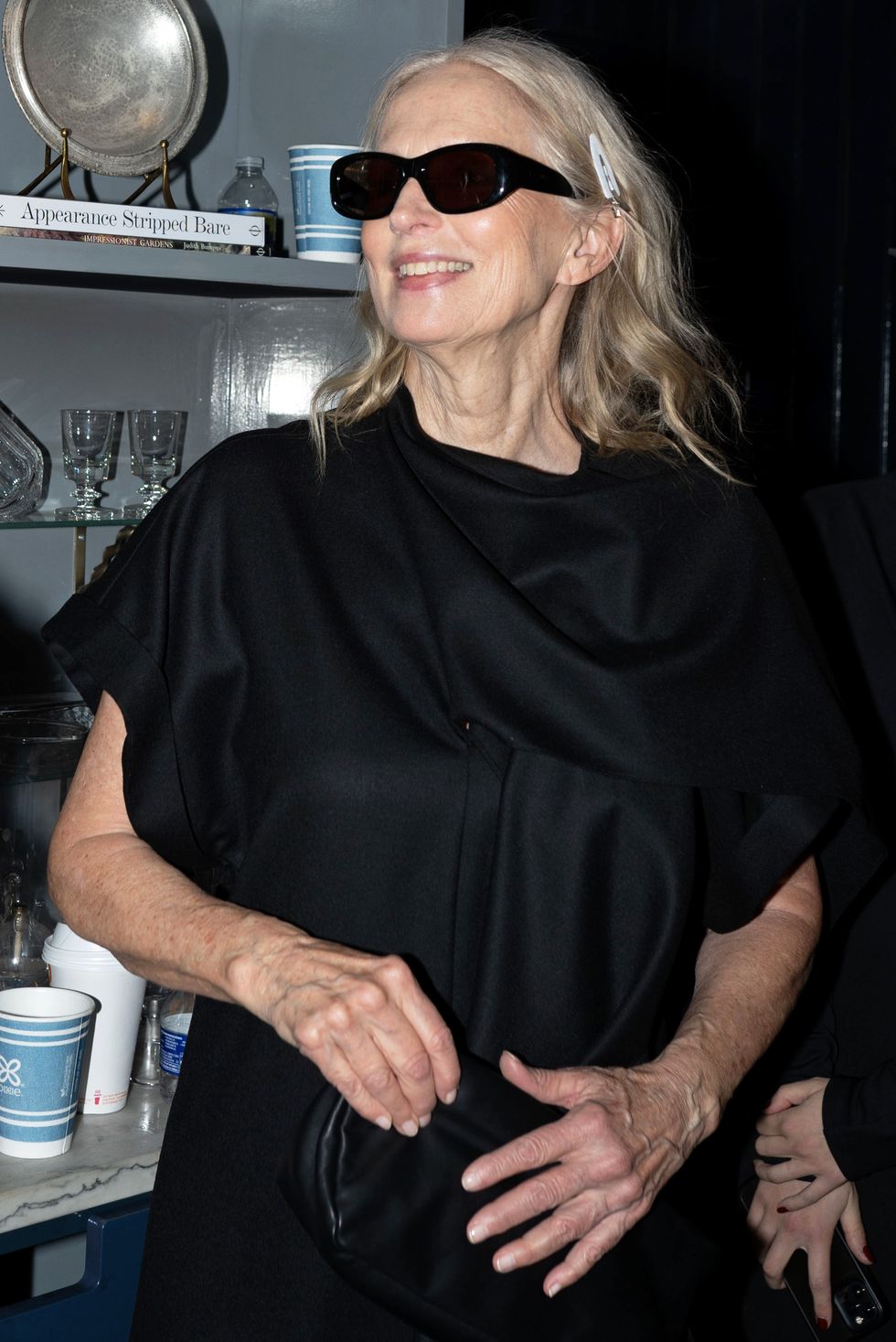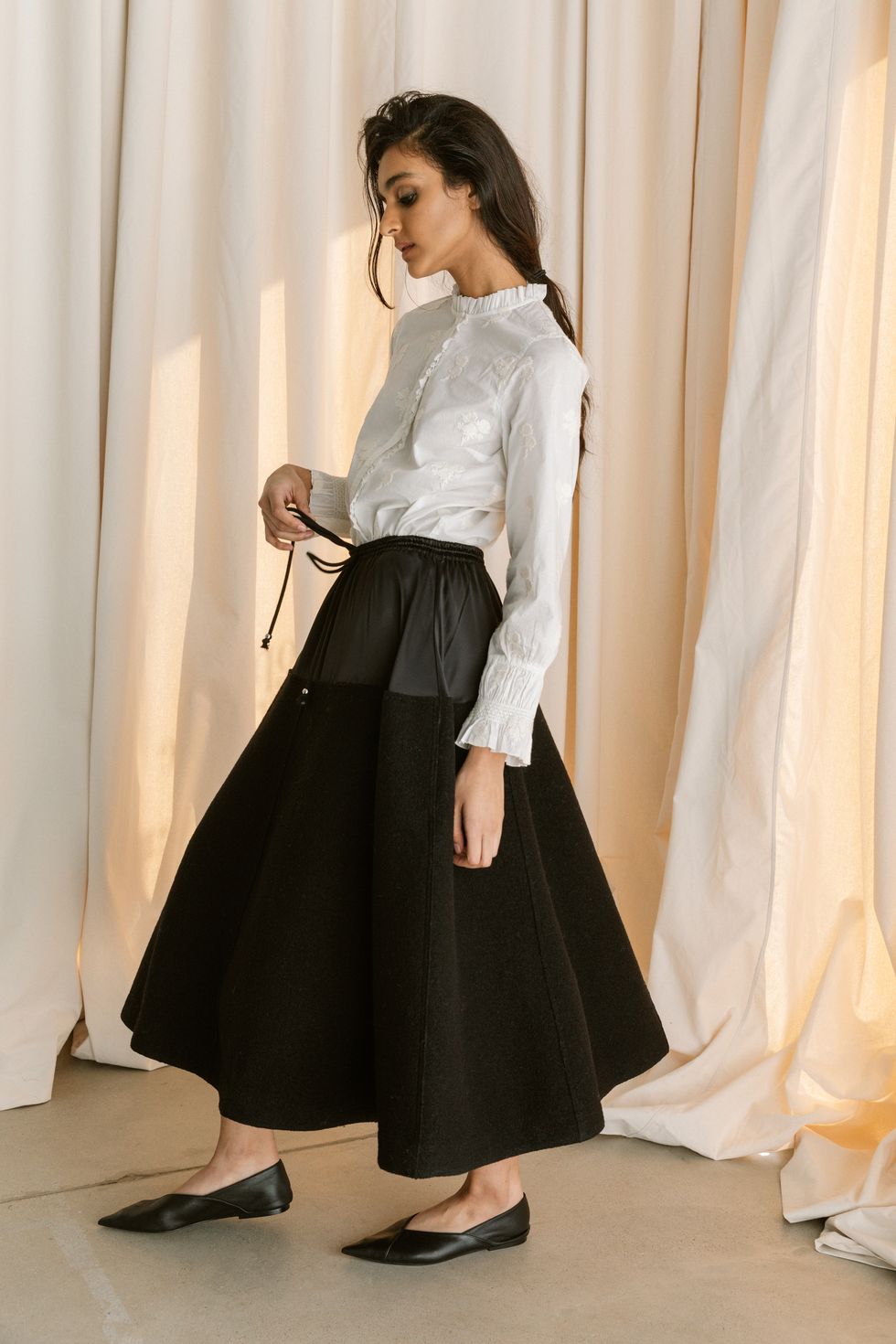An Overachiever’s Guide to the Soft Life
Once upon a TikTok, “the soft life” became a thing.
It began with Nigerian influencers like Sisi Yemmie sharing their tips on self-care and nourishment, then blew up to include shopping guides for face oils, think pieces for Black female liberation, and, of course, dating advice. The gist of the #softlife is simple: Reframe the concept of “success” to center rest and renewal instead of an endless rapid hustle. The result—according to TikTok and its 1.4 billion #softlife views, anyway—is more boundaries creating more bounties, both emotional and in the bank.
“I love that phrase,” says Joy Bell, 67, referring, of course, to the soft life. “But I think for some women, slowing down feels like giving up. And for me, working is what gives me joy.” For the uninitiated, Bell is a successful model with decades of catalog experience, but a recent runway push for age diversity thrust her back into the spotlight at New York Fashion Week. When we meet, it’s at an event for Kallmeyer, the buzzy women’s label that invited models and editors to share croissants and play cards at La Mercerie in New York’s Soho neighborhood instead of sitting through a traditional runway show. Bell wore the collection’s closing look: a black scarf-neck sweater that offset her silver-blonde hair. “I want to keep going and going,” Bell said. “It makes my mind sharper. It makes my sex life better…I don’t think you have to give up your ambition to be kind to yourself.”
Such is the crux of the soft life dilemma, a uniquely modern angst that acknowledges the evils of capitalist labor, but doesn’t think an Eat, Pray, Love-style life of wandering wonder is particularly enjoyable, even when it’s financially possible. Joy is a practice, after all, and for those of us lucky enough to make “what we do” and “what we love” check the same career box, the thought of releasing our workplace stress feels akin to releasing our goals. You’ve got to burn to shine, right?
“No, you do not,” says Tracy Reese, 70, a beloved American fashion designer. Reese has agreed to walk me through her principles of radical joy and personal softness, which include—she assures me—a lot of hard, meaningful work. For Reese, scaling back on quantity while increasing quality was the first step to reclaiming her purpose while valuing rest. “We were cranking out 10 or more collections a year,” she says. “We were being told to make clothes nobody needed. To me, that’s pretty joy-sapping, and I was supposed to be this powerful woman at the top of my game. But being powerful means making choices. I had to say, ‘I’m the only one responsible for me and my happiness. I get to decide how I live my life.’ That’s the most ambitious thing you can do, I think—make your own choices. So that was step one.”
Reese moved back to her hometown of Detroit and launched a new label, Hope for Flowers, which creates limited pieces with local labor and natural textiles. She began volunteering at design programs in the Detroit public schools, and sponsoring free art classes at her Michigan stores. “I always want to be making things, connecting people, doing the work,” Reese says. “I’m an artist and I was born that way. But I don’t want to be doing someone else’s idea of hard work. That’s for me to decide. That’s the difference.”
In the words of activist and author Amanda Nguyen, who’s 32 years old, “Rest means different things to different women, and that’s okay. For me, when I need to zone out, don’t laugh, I do math problems in my head. I look at equations and physics. It brings me such joy and it calms me down to remember.”
The Nobel Peace Prize nominee is plenty ambitious—she helped build the Stop AAPI Hate movement online, and lobbied to pass the Sexual Assault Survivor Rights bills in the Senate and at the United Nations; she is now working to become an astronaut (yes, you read that correctly). “But I can’t do all of that without building in time for rest, even if I have to literally put it on my calendar and tell people on my team, ‘Hey, I need a half an hour’ without apologizing.” Nguyen does all the “usual things” to encourage serenity—the occasional glass of red wine, visits to beautiful beaches (most recently in Tràng An, Vietnam), and self-care routines including her favorite skin care products and fashion items. When we meet, she is dressed in a super-soft knit dress from Safiyaa; the brand has recently given her a leadership award. “But when I need a minute alone to soften my energy, it really does go back to math,” she says. “I mean, numbers always have an answer. They’re not judging you. They just want your understanding.”
Understanding, it seems, is a key part of mastering the #softlife. Knowing what you truly want versus what others want for you can help separate noise from purpose. Knowing that the ability to slow down is a privilege can also help root the practice of softness in mindfulness, instead of share-me memes and selfies. As activist Rachel Cargle, 35, told the Los Angeles Times, “This intention to cultivate spaces of softness, rest, and healing—for Black women in particular—is not simply a millennial hashtag or fodder for online content.” Instead, it’s a rallying cry to push through the idea that we must “earn” a living, and simply just live. As Tricia Hersey of the Nap Ministry, an “organization that examines the liberating power of naps,” tells her 546,000 Instagram followers daily: “Care, softness, rest, and imagination will save us.” But it will also allow us to save meaningful work from being usurped by hustle for hustle’s sake.
For Reese, this means weaving celebrations of literal softness into her clothes. “Now when I design, joy really sings through me,” she says. “And I want people to feel that when they wear the pieces. So, is it comfortable? Does it feel good on your body? Does it make you feel good in your body? That’s the beauty of creating from scratch; you can do that for people….And yes, we have a business, right? We sell clothes and we exist in a world we didn’t necessarily build. But we can make that world better if we work on the right thing. And then when we’re done working for the day, we go home and hang out and not work,” she says. “And we feel really good about that, too.” Sometimes, the softer approach is necessary.



